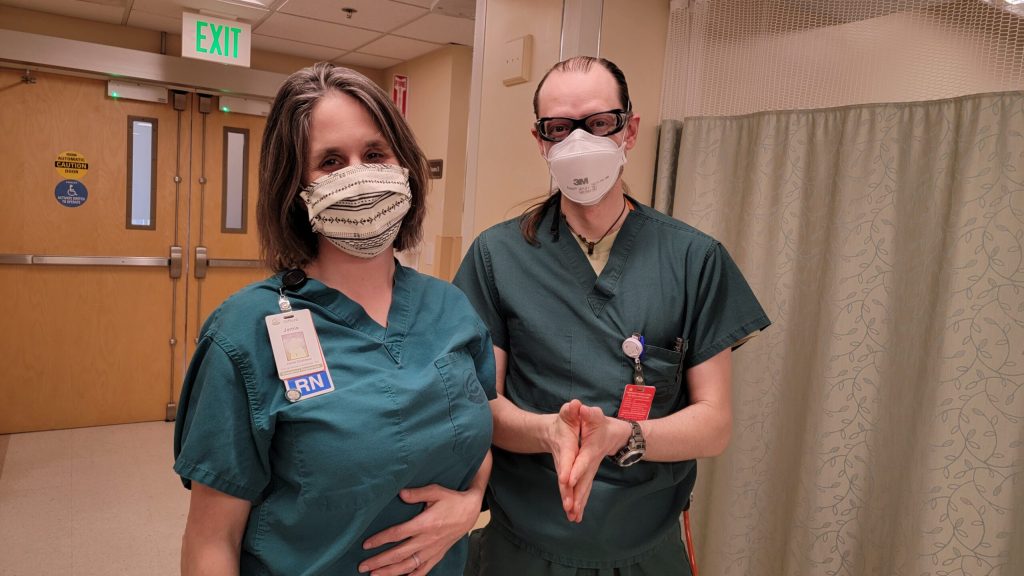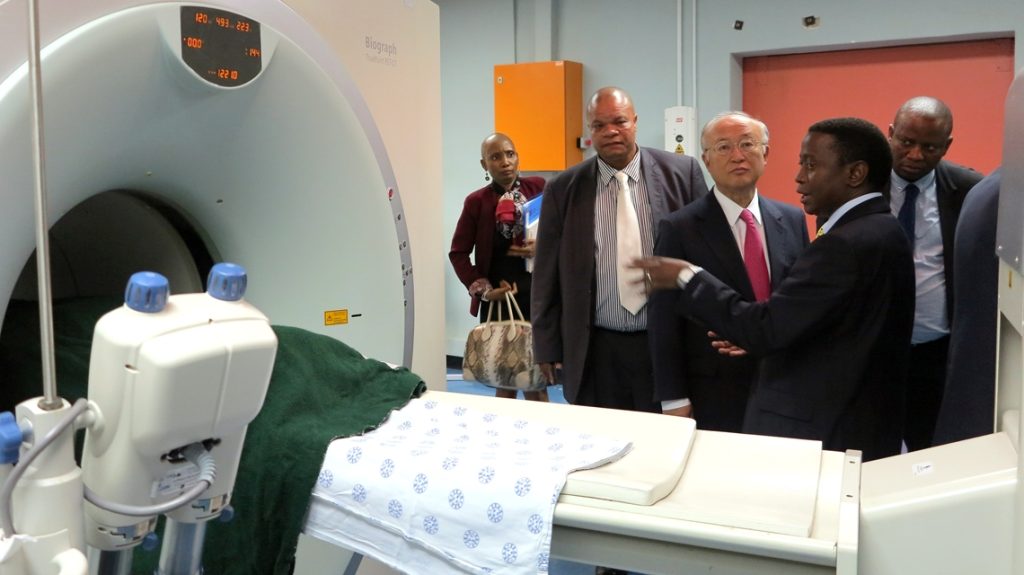With growing awareness of mental health issues and illness, Psychiatric Hospitals in Ireland have become crucial pillars of support for individuals and their families. This article explores Psychiatric Hospitals in Ireland, shedding light on their role in addressing mental health needs and fostering a healthier society.
It is estimated that one out of every four individuals will experience some form of mental health difficulties in their lifetime, ranging from mild periods of low mood to more severe depression, and a smaller percentage may encounter severe mental health problems.
Psychiatric hospitals in Ireland play a vital role in the provision of mental health care and support for individuals facing various mental health challenges.
These hospitals serve as essential institutions for assessment, diagnosis, treatment, and rehabilitation, offering a range of services to promote mental well-being.
As Ireland continues to prioritize mental health and well-being, these hospitals play a crucial role in destigmatizing mental illness, promoting early intervention, and ensuring access to quality care for those in need.
Psychiatry Hospitals in Ireland, offer a multidisciplinary approach, combining the skills and knowledge of psychiatrists, psychologists, nurses, social workers, and various therapists to provide comprehensive and personalized care.
With multidisciplinary teams (MDTs), Psychiatric Hospitals in Ireland are responsible for providing care and treatment to individuals.
This team collaborates with individuals, families, staff, and groups to alleviate distress, address issues, enhance well-being, and enhance each patient’s capacity to find joy and purpose in life.
What Does An MDT Consist Of?
An MDT is a mental health team that comprises a range of professionals. The core team members typically include Psychiatrists, Psychiatric Nurses, Clinical Psychologists, Social Workers, Pharmacists, Occupational Therapists, and Physiotherapists.
Additionally, other specialized therapists may also be part of the team, depending on the specific requirements.
Roles Of MDTs
Each profession within the MDT brings unique expertise to the table, allowing them to collaboratively utilize their skills when dealing with complex and challenging mental health conditions. MDTs strive to ensure that each patient receives a personalized care plan tailored to their specific needs.
Admission To A Psychiatric Hospital
According to The Mental Health Act Ireland 2001, if you are suffering from a mental disorder, there are laws on how and why you can be admitted to a psychiatric hospital and your rights as a patient.
If an individual is experiencing a mental disorder, there are two options for entering a psychiatric hospital or unit: Voluntary Admission or Involuntary Admission.
The majority of admissions are voluntary, meaning that they willingly agree to seek treatment. However, there are specific regulations in place for the involuntary detention of patients.
Voluntary Admission to a psychiatric hospital or unit follows a similar process to being admitted to a general hospital. A general practitioner (GP) or consultant may make a referral on behalf of the patient.
It is also important to note that, unlike patients in general hospitals, patients don’t always have complete freedom to leave psychiatric care whenever they wish.
Patients can also be Involuntarily Admitted and detained in an approved psychiatric center. However, admission cannot be solely based on having a personality disorder, but also being socially deviant, or having an addiction to drugs or intoxicants.
Admission into a psychiatric hospital typically involves a thorough assessment process to determine the appropriate level of care for the individual.
Some of these include:
- Initial Assessment: The admission process usually begins with an initial assessment. This can occur through various means, such as contacting the hospital directly, being referred by a healthcare professional, or going to an emergency department if it’s an urgent situation.
During this assessment, a healthcare professional will evaluate the individual’s mental health condition, gather relevant information, and determine the appropriate course of action.
- Medical Examination: A medical examination is often conducted to assess the individual’s physical health and rule out any underlying medical conditions that could be contributing to their mental health symptoms.
This examination may involve taking a medical history, conducting physical examinations, and ordering any necessary tests or investigations.
- Psychiatric Evaluation: A comprehensive psychiatric evaluation is usually conducted by a psychiatrist or a mental health professional.
This evaluation involves a detailed assessment of the individual’s mental health condition, including symptoms, history, and any relevant factors.
The purpose is to develop an accurate diagnosis and determine the most appropriate treatment plan.
- Treatment Planning: Based on the assessment outcomes, the healthcare team will develop an individualized treatment plan.
This plan may include various interventions such as medication management, individual or group therapy, psychoeducation, and other supportive measures.
- Inpatient Admission: If it is determined that inpatient care is necessary, the individual may be admitted to the psychiatric hospital.
The hospital will provide a safe and supportive environment for stabilization, intensive treatment, and monitoring. The length of the stay will depend on the individual’s needs and progress.
While the specific procedures may vary depending on the hospital and the country it is also important to seek professional advice from a healthcare provider or contact the specific hospital you are interested in.
Here are the Top Psychiatric Hospitals in Ireland:
National Rehabilitation Hospital (NRH) – Psychiatry Liaison Service
The National Rehabilitation Hospital (NRH) provides Complex Specialist Rehabilitation services to patients who require a specialist program of rehabilitation.
Liaison Psychiatry Services specializes in the interface between general medicine and psychiatry. Liaison psychiatrists work at the interface between physical and psychological health.
The liaison psychiatry service provides assessment, evaluation, and assistance in the treatment of mental health problems across all NRH adult programs.
They offer services including Assessment and Review of Mental History, Mental state examination, Review of existing medication, an Experienced rehabilitation team, and Supportive psychotherapy sessions.
Visit the Website for more information.
St Vincent’s Hospital, Fairview
St Vincent’s Hospital, Fairview is a public voluntary psychiatric hospital founded in 1857. They work in partnership with the Health Service Executive and the Mater Misericordiae University Hospital, to provide psychiatric care.
Patients are admitted under the care of a Consultant Psychiatrist and patient care is delivered by a multidisciplinary team, which includes the consultant psychiatrist, non-consultant hospital doctors, and nursing staff.
The multi-disciplinary team works closely with other staff from other disciplines including psychology and psychotherapy, Community Mental Health Nurses (CMHNs), Social work, Day Hospital staff, Home Care Team, Substance Abuse, Physiotherapy, and Pharmacy.
Treatment options vary according to the specific needs of the patient but may include drug therapy and psychosocial interventions.
The physical health of patients is also attended to, with routine physical examinations carried out following admission and there are close links with the Mater Hospital.
Visit the Website for more information.
St John of God Hospital, Blackrock
St. John of God Hospital is a private acute psychiatric teaching hospital one of the leading European providers of mental health treatment and care.
The Hospital currently provides specialist services in Substance Misuse, Psychotic Disorders, Eating Disorders, Psychiatry of Later Life, and Adolescent Disorders.
Alongside excellent clinical treatment and care to patients and their families, they are committed to training healthcare professionals and to conducting clinical research.
Treatment is delivered in a comfortable, supportive environment with consultant-led integrated multidisciplinary teams.
They offer Treatment Programmes, Psychiatry of Later Life, Mindfulness and Relaxation, WRAP Programme, and more.
Visit the Website for more information.
St James’s Hospital – Department of Psychiatry
The Dublin South Central Mental Health Service is a public service run by the Health Service Executive (HSE). Its inpatient service is located in the Jonathan Swift Clinic (JSC) in St James’s Hospital.
St James’s Hospital is one of Ireland’s largest acute academic teaching hospitals with a fundamental purpose in the delivery of health treatment, care, and diagnosis as well as health promotion.
They offer Psychiatry services and are recognized as prioritizing innovation and excellence of delivery. They provide acute, emergency, specialist services and residential care, across a variety of medical specialties.
Visit the Website for more information.
St Patrick’s Hospital
St Patrick’s Hospital Established in 1747, is an approved psychiatric center and the oldest psychiatric hospital in Ireland, and
They provide a wide range of mental health services, including outpatient, day-patient, and inpatient care.
They handle issues such as anxiety, depression, alcohol/chemical dependence, eating disorders, psychosis, dual diagnosis, the mental health of older adults, and bipolar mood disorder.
Treatment and care are provided by multidisciplinary teams consisting of psychiatrists, registrars, ward-based nurses, occupational therapists, social workers, psychologists, cognitive behavioral therapists, and family therapists.
The hospital provides a comprehensive range of mental health services and facilities that cater to a wide range of mental health difficulties. These include:
- Occupational Therapy
- Art Room
- Inpatient Care,
- Day Patient Programmes
- Outpatient Dean Clinic services
- Information Centre
- Oratory
- GP Primary Care Service
As a renowned mental health service provider, they are committed to providing the highest quality mental healthcare, developing new mental health treatment and prevention services.
Visit the Website for more information.
St Luke’s Psychiatric Hospital
St Luke’s Psychiatric Hospital provides specialist Mental Health Services. They offer Health and social care services such as Primary Care Centres, Medical Cards, GPs, Emergency Treatment, Behavioural Family Therapy, and Cognitive Behavioural Therapy for Psychosis.
They work in partnership with local GPs, hospitals, and other local health care and social services and run many different types of services.
This hospital also provides assessment and treatment in different ways depending on what the problem is and how severe or complicated it is.
Visit the website for more information.
Frequently Asked Questions – Psychiatric Hospitals in Ireland
How can I be admitted to a psychiatric hospital in Ireland?
To be admitted to a psychiatric hospital in Ireland, you generally need a referral from a mental health professional, such as a psychiatrist or a general practitioner (GP).
They will assess your condition and determine if hospitalization is necessary. In emergencies, you may be admitted directly through an emergency department or mental health crisis service.
Are psychiatric hospitals covered by health insurance in Ireland?
The coverage for psychiatric hospitals can vary depending on your health insurance policy. Some private health insurance plans may provide coverage for mental health services, including psychiatric hospitalization.
It is important to review your policy or contact your insurance provider to understand the extent of coverage and any limitations or requirements.
What types of treatments and therapies are available in psychiatric hospitals in Ireland?
Psychiatric hospitals in Ireland offer a range of treatments and therapies for individuals with mental health conditions.
These may include medication management, individual therapy, group therapy, cognitive-behavioral therapy (CBT), dialectical behavior therapy (DBT), art therapy, and occupational therapy.
The specific treatments offered can vary between hospitals and are tailored to meet the needs of each patient.
What is the cost of mental health care in Ireland?
For individuals without private health insurance seeking private care, therapy sessions can vary in price from €50 to €80 per hour. Residential stays can be quite expensive, costing thousands of euros. However, certain treatment centers and hospitals may offer financial assistance for these services.
Conclusion
Psychiatric hospitals in Ireland are integral to the mental health care landscape, serving as centers of compassion, expertise, and support for individuals grappling with mental health conditions.
By recognizing the significance of psychiatric hospitals and supporting their efforts, Ireland can continue to make strides in building a more inclusive, compassionate, and resilient society where mental health is prioritized and valued. Check out the 20 Top Psychiatric Hospitals in Ontario You Didn’t Know.


